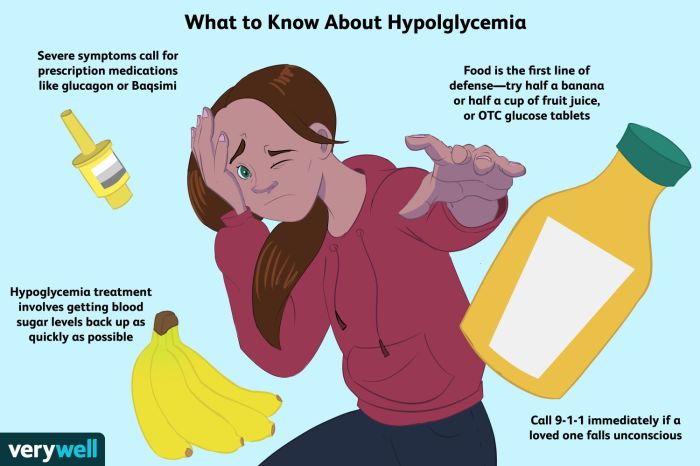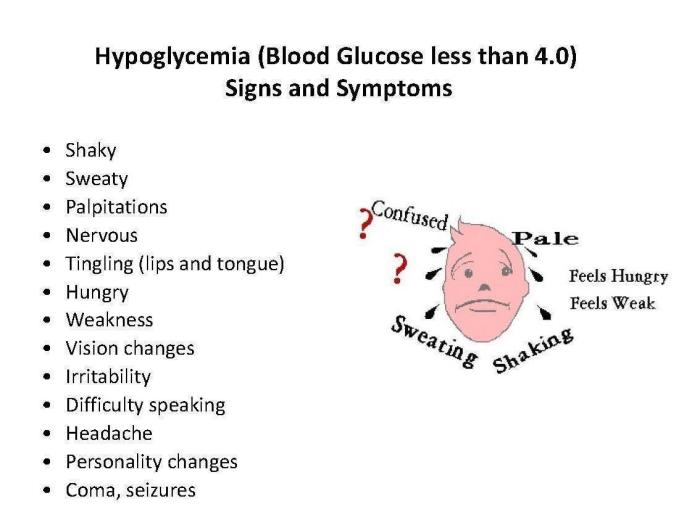Severe symptoms of hypoglycemia could be confused with bme 3 – Distinguishing between severe hypoglycemia and BME 3 is crucial for appropriate medical intervention. This article explores the overlapping symptoms, emphasizing the significance of accurate diagnosis and management strategies.
Hypoglycemia, a condition characterized by dangerously low blood sugar levels, can manifest with symptoms that closely resemble those of BME 3 (bradypnea, miosis, and encephalopathy).
Differential Diagnosis: Severe Hypoglycemia and BME 3: Severe Symptoms Of Hypoglycemia Could Be Confused With Bme 3

Severe hypoglycemia and BME 3 share overlapping symptoms, which can make it challenging to differentiate between these conditions. Recognizing the subtle differences in their clinical presentations is crucial for appropriate and timely treatment.
Symptoms of Severe Hypoglycemia
- Altered mental status (confusion, disorientation)
- Seizures
- Loss of consciousness
- Pallor
- Diaphoresis
- Tachycardia
- Tremors
- Hunger
- Anxiety
Some of these symptoms, such as altered mental status and seizures, can mimic BME 3.
Symptoms of BME 3
BME 3 (bradycardia, mental obtundation, and electrolyte abnormalities) is a rare but potentially life-threatening condition characterized by:
- Bradycardia (heart rate< 60 bpm)
- Mental obtundation (confusion, lethargy)
- Electrolyte abnormalities (hypokalemia, hypophosphatemia, hypomagnesemia)
The absence of hypoglycemia and the presence of bradycardia and electrolyte abnormalities help differentiate BME 3 from severe hypoglycemia.
Clinical Assessment
The clinical assessment involves:
- Detailed history and physical examination
- Blood glucose testing
- Electrolyte panel
- EKG
Blood glucose levels below 50 mg/dL support the diagnosis of severe hypoglycemia, while electrolyte abnormalities and bradycardia suggest BME 3.
Management Strategies
Severe hypoglycemia requires immediate glucose administration, while BME 3 requires correction of electrolyte imbalances and bradycardia.
Prevention and Education, Severe symptoms of hypoglycemia could be confused with bme 3
Preventing severe hypoglycemia and BME 3 involves:
- Optimizing diabetes management
- Educating patients about the symptoms and risks of both conditions
- Regular monitoring of blood glucose and electrolytes
FAQ Explained
What are the key symptoms of severe hypoglycemia?
Confusion, seizures, loss of consciousness, and coma.
How is BME 3 different from severe hypoglycemia?
BME 3 is characterized by bradypnea, miosis, and encephalopathy, while severe hypoglycemia typically presents with tachycardia, mydriasis, and altered mental status.

